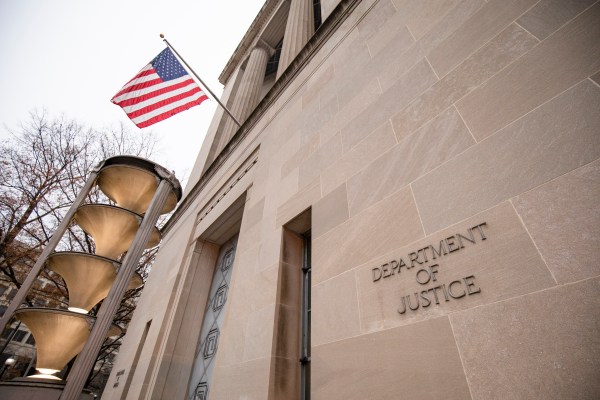There has been no shortage of conversations surrounding the NFT market after the seemingly quiet industry was elevated to the forefront of the crypto space in the last year as adoption accelerated.
Until now, there hasn’t been any major blowback against the industry, aside from snide comments from people outside of the NFT space declaring there’s no real reason people would pay thousands of dollars in cryptocurrency for a digital image.
But on June 1, all hell broke loose after Nate Chastain, a former executive at the largest NFT marketplace, OpenSea, was arrested and charged “with wire fraud and money laundering in connection with a scheme to commit insider trading in [NFTs],” according to a press release from the U.S. Attorney’s Office for the Southern District of New York, TechCrunch reported.
What’s noteworthy is that the government is calling this “insider trading,” a phrase reserved for the trading of company stocks or other securities by people with access to internal information about the business they work for.
So is this insider trading, or perhaps an attempt to brand NFTs as securities?
That’s not for me to decide (for many reasons — namely that I am not a lawyer). However, the case could determine whether NFTs are indeed securities — and if that label really matters for the future of the digital assets.
Alma Angotti, partner and global legislative and regulatory risk leader at consulting firm Guidehouse, told TechCrunch that it’s possible that NFTs can fit under the umbrella of stocks and securities.
“It could very well be a security under the Howey Test — if you’re buying a piece of an NFT and hoping the price will go up so you make money from it, that’s not very different [from securities].”
Angotti previously served as an enforcement official at the U.S. Securities and Exchange Commission, the U.S. Department of the Treasury’s Financial Crimes Enforcement Network, and the Financial Industry Regulatory Authority. She now leads Guidehouse’s cryptocurrency, digital assets and fintech projects.
“Misappropriating your employer’s confidential information is fraud, and once you move the proceeds of that fraud through the monetary system, it’s money laundering,” Angotti said. “This [charge] is not at all surprising.”
Damian Williams, the U.S. attorney for the Southern District of New York, echoed this in the press release:
NFTs might be new, but this type of criminal scheme is not. As alleged, Nathaniel Chastain betrayed OpenSea by using its confidential business information to make money for himself. Today’s charges demonstrate the commitment of this Office to stamping out insider trading — whether it occurs on the stock market or the blockchain.
The former OpenSea exec allegedly bought 45 NFTs
Chastain was previously fired from OpenSea after being accused of front-running sales on the platform by buying NFTs before they were featured on the marketplace’s main page and then selling them shortly after, TechCrunch reported in September 2021.
OpenSea users linked a few wallets and suspiciously timed transactions on the Ethereum blockchain back to Chastain. Shortly thereafter, OpenSea fired him when they determined the allegations were legitimate.
At the time, OpenSea wrote in a blog post it didn’t have any specific policies in place to prohibit these types of actions but has since created new employee rules.
According to the Department of Justice indictment, Chastain used OpenSea’s internal information about what NFTs would be featured on its marketplace before he bought about 45 NFTs during the summer of 2021. He typically sold those NFTs for two to five times his purchase price, the indictment alleged.
“As the world’s leading web3 marketplace for NFTs, trust and integrity are core to everything we do,” an OpenSea spokesperson said to TechCrunch today. “When we learned of Nate’s behavior, we initiated an investigation and ultimately asked him to leave the company. His behavior was in violation of our employee policies and in direct conflict with our core values and principles.”
Chastain was charged with one count of wire fraud and one count of money laundering, for a total possible maximum sentence of 40 years in prison, according to the press release.
Allegations could change the future for NFTs
Although OpenSea fired Chastain after the allegations first came to light, Angotti notes that the company’s fatal flaw was not having controls in place to mitigate that risk, regardless of whether it was regulated at the time, Angotti said.
“They need to think about, what are the risks of how my platform can be abused?” she said. “Because you don’t want fraud on your platform. You don’t want misappropriation on your platform. You don’t want bad people to launder money on your platform.”
Even if Chastain is acquitted and NFTs aren’t defined as securities, there will still be an eye on the industry, Angotti hinted. “The Justice Department clearly has crypto and NFTs as an enforcement priority; they’ve got a whole task force.”
The designation of NFTs as securities doesn’t matter for this situation, Angotti said.
“It doesn’t have to be labeled as a security,” she said. “If you’re a real estate investment trust and you know your company is going to buy a big shopping center in a certain part of town and you go buy some of that land before they can because you know the value will go up, you’re still going to be charged with this.”
Although this charge stirred up panic and conversations across the NFT community, this kind of action could be positive.
“It could bring comfort to people inside the market,” Angotti said. “[Investors] don’t want to feel like they’re being duped by an insider.”
